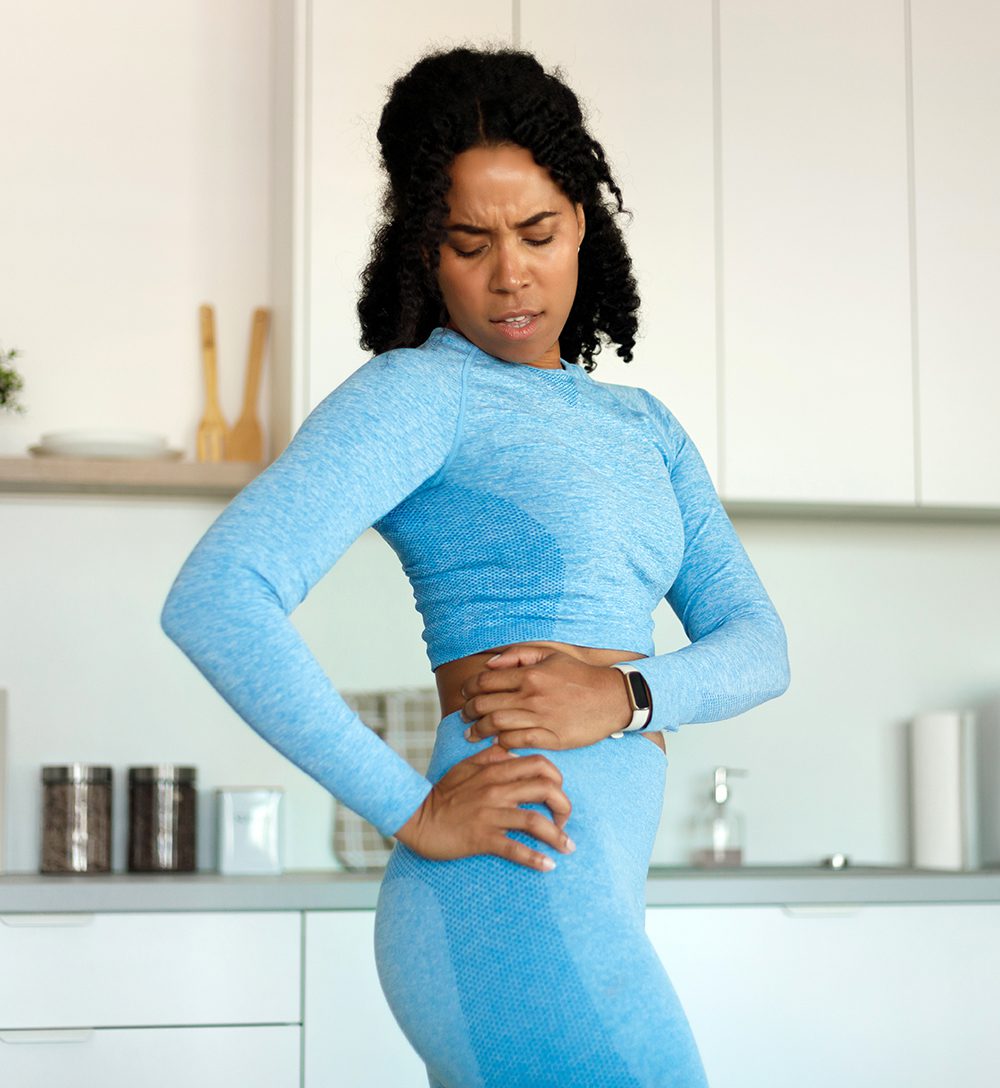Hip Bursitis and Hip Pain
Our hips do an amazing amount of work. These complex joints support the weight of our bodies and allow us to sit, stand, walk, and move our upper legs. When we experience hip pain, it can be a significant cause for concern.
Bursitis is a common hip injury that can feel painful but is often easily treatable. As Dr. Jason Sharp with CMC Orthopaedics explains, taking a few precautions can keep your hip joints healthy, strong, and mobile.
What is hip bursitis?
“Inside each hip, there are two bursa sacs that are like cushions filled with fluid,” describes Dr. Sharp. “They keep your joints lubricated and protected as they move. The bursa located on the outside of the hip is most likely to become inflamed. When this happens, it’s referred to as bursitis.”
This common hip injury often happens in older adults, but young people can also experience hip bursitis. Studies have found that about 15% of women and 8.5% of men will experience hip bursitis in at least one of their hips during their lifetime.
“Typically, the root of bursitis is repetitive motion, causing friction in the bursa and causing it to become inflamed,” says Dr. Sharp. Athletes, people who run and bike, and even regular walkers can experience a flare-up of hip bursitis, particularly if they’re moving up and down a lot of hills. Most people have slight differences in leg length, and as we age, uneven steps can also result in irritation in the hip.”
“Other injuries like to your back, knee, or foot can cause irritation because of favoring one leg over the other or changing your stance to accommodate the pain. This same thing can occur when you are accommodating pain due to arthritis. Suddenly, the joint becomes irritated as you put more pressure on one side of the body.”
People with hip bursitis often feel pain on the outside of their legs. This pain can be in the hip, thigh, or buttock.
We’re Here for You!
A Better Life is a Click Away.
Tips for preventing Hip Bursitis
Prevention is key to avoiding bursitis. Keep your body healthy and strong with a few of Dr. Sharp’s tips to avoid flare-ups before they happen.
Build strength and flexibility.
“Weakness in your glutes, legs, knees, and ankles can lead to hip problems,” stated Dr. Sharp. “I always recommend leg strengthening exercises to patients. It’s so important for building the stability your hips need to remain healthy. This doesn’t have to be an intense workout regime either. Yoga, Pilates, and other similar exercise regimes can provide you with lower-impact exercises that are very doable and will still help you build strength throughout your body, core, and legs. And these types of exercises have the added benefit of promoting flexibility and balance.”
Keep your weight in check
“Maintaining your weight is so important for the health of all your joints particularly the ones in your lower extremities,” recommends Dr. Sharp. “Extra weight causes stress on your hips and knees and even the smallest bit of weight loss can make a big difference in the pain and stress you feel.”
“If you are already working on some of those strengthening exercises I mentioned before and putting forth an effort to add exercise into your routine, your next steps to help you achieve some weight loss goals are making healthy adjustments to your diet, drinking plenty of water, avoiding sugary drinks and sodas (even the diet ones), getting healthy with your snacking, and getting plenty of sleep.”
Footwear is more important than you’d think
Proper footwear is crucial for any activity and can make a world of difference in your posture and the pressure your hips have to endure. “When you wear unsupportive, uncomfortable shoes or shoes that don’t fit you properly they can put extra stress and strain on your joints,” states Dr. Sharp. “If you have a leg that is longer than another, you may need to utilize shoe inserts to even out your gait. It might be necessary for you to meet with a podiatrist to work out proper shoes and support if you have some other underlying issues with your feet.”
Pace yourself when starting new athletic activities
If you are wanting to take on a new sport or start running or biking it’s important that you start out slowly and work your way into it,” Dr. Sharp stresses. You can expect yourself to perform at your optimal condition right away and you have to give your body time and grace to adapt. Take your time because if you don’t that is when you will hurt yourself.”

Listen to Your Body
Listen to your body’s signals otherwise, you can end up with an unnecessary injury. “You’ve heard of “playing through the pain? When you push yourself beyond your capabilities, you put yourself at great risk of injury that can lead to bursitis,” cautions Dr. Sharp. “It’s ok to feel some stress in your body, but you should never feel sharp pain, tearing, or crunching sensations. Stay aware of your body and if something doesn’t feel right or you feel discomfort, back off or stop what you are doing.”
What can I do about my hip pain?
If you are experiencing discomfort during your regular activities and dealing with lingering hip pain, it’s important to talk to a professional to get to the root of the problem. Even though hip bursitis is a common injury that’s easy to treat, other hip injuries like hip labral tears, joint impingements, and stress fractures can be more serious. Reach out to Dr. Sharp and the other orthopedic experts at CMC Orthopaedics today. We’re here to help you get back to pain-free movement.
To set an appointment, call 843-347-8041 or request an appointment today!
Dr. Jason Sharp
Fellowship Trained in Sports Medicine at Prisma Health
Board Certified Family Physician by the American Osteopathic Board of Family Physicians
Board Certified Sports Medicine by the American Osteopathic Board of Family Physicians
Dual board-certified in family medicine and sports medicine, Dr. Sharp helps recreational and competitive athletes regain their highest level of fitness and ability. He implements a comprehensive approach to diagnose and treat injuries and other underlying issues. He specializes in ultrasound guided injections, acute and chronic injury care, and athletic-related concussion treatment. Dr. Sharp has specialized training in orthobiologics; a treatment that uses the body’s own healing abilities to help with long-term pain from tendon injuries and osteoarthritis.





